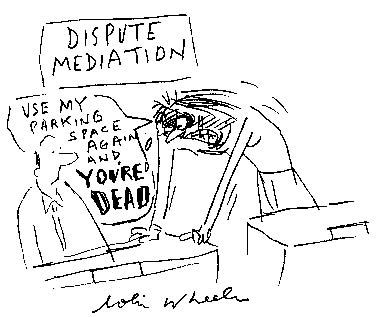It’s the details that resonate. Grass seed and weedkiller’ have been added to the shopping lists of operational managers based in Camp Bastion in Afghanistan.
It’s the details that resonate. ‘Grass seed and weedkiller’ have been added to the shopping lists of operational managers based in Camp Bastion in Afghanistan. The grass seed is for the memorial sites planted on the actual places where soldiers (and their support teams) have been killed on active duty (the number has now risen to 289). The weedkiller is to kill off the intrusive summer weeds that are making life more difficult for those trying to seek out the Taleban.
Bank Holiday Monday on Radio 1 was given over to British Forces Broadcasting Service live from Camp Bastion in Afghanistan. The ten-hour takeover was given no billing in the Radio Times or the national press but is probably one of the most important days in the history of the station, which has never before linked up in this way with BFBS. When I spoke beforehand to Glenn Middleditch, the Radio 1 producer, in Camp Bastion, I could hear footsteps crunching over dust-ridden ground as the telephone receiver was handed over to him by his Ministry of Defence minder. No smooth studio floors here.
Camp Bastion, we heard, is a sea of tents and Iso containers (those rectangular metal boxes seen on Eddie Stobarts and piled up on quaysides) strewn over 35 square kilometres of the Afghan desert to the north-west of the town of Lashkar Gah. Middleditch had flown in via Cyprus and Kandahar on an RAF Hercules along with soldiers returning to the base for another tour of duty. The journey began from RAF Brize Norton just like a commercial flight, he told me, but the mood changed once they had swapped planes again and ascended out of Kandahar in pitch black. Not a lot was said, the plane fell silent, the mood very reflective, ‘as if his fellow passengers were sitting there thinking about what they were getting into and what they were going to have to do’.
Throughout the day, we heard troopers, sergeants, majors, corporals, flight lieutenants, army surgeons and medical corps telling us just what this might be. How do you deal with basic things like performing your natural motions when you’re stuck on a convoy full of essential supplies moving out from MOB (main operating base) to some of the most advanced posts (FOBs) in Helmand province? The journey might take as long as 26 hours, and throughout the time you can’t afford to stop moving for a moment otherwise you’ll become a sitting target. Helmets can acquire a useful alternative function at such times (trust a woman officer from the Close Support Logistics Regiment to come up with that one).
BFBS, which has just won a prestigious Sony Award for ‘outstanding achievement’ in recognition of its work in keeping up morale in Camp Bastion, was established during the second world war in 1943 as ‘a very special kind of radio’, bringing together those in the armed forces and their families back home. For years it had a Sunday lunchtime slot on the Light Programme and then Radio 2, hosted by genteel charmers such as Judith Chalmers, Jean Metcalfe and Cliff Michelmore. Now operating from an Iso in the middle of Camp Bastion, next to the gym and the cookhouse, its music staples (anything from Neil Diamond to the Black Eyed Peas and Bodyrox) are rather different, as is the conversational style of the presenters, a medley of former army personnel, music buffs, former defence correspondents and radio journalists.
There is nothing to do in Camp Bastion, where service personnel are either based in logistics or medicare, or go for short periods of R&R (rest and relaxation), except go to the gym (virtually everyone in the camp is now super-fit), eat (the food on offer is supposed to be ‘fantastic’) and listen to music, mostly Radio 1 or BFBS, which established its first frontline studio at Camp Bastion a couple of years ago. The presenters on Monday, Richard Hatch and Jessie Aru, have been living on camp for a tour of duty, just like the army personnel, and were just so different from their Radio 1 colleagues, so committed to the people they were interviewing.
A young corporal on a FOB tells us, ‘We’re over here for a reason. We know what we’re doing. We’re the British army. We’re a small army. But we’re very professional…We’re kept going by our British sense of humour.’ This was not the view of a father of one of those killed in action back in 2006, who said his son, a pilot, ‘was not killed by insurgents; he was killed by incompetence’. He believes, like many others, that the war has become unwinnable and should therefore be stopped.
But what was striking about the people we heard from who were involved in the campaign was their sense of duty and purpose. A world, and more, away from the daffy, dipsy chatter of Radio 1. Let’s hope the link-up with BFBS becomes a regular weekend feature: an updated version of Two-way Family Favourites? A Richard and Jessie show?






Comments